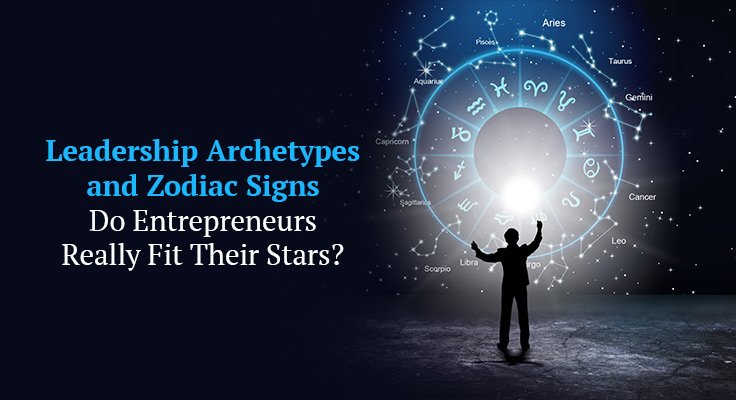Sit with a group of founders for an evening and you’ll usually hear the same themes. Someone can’t stop starting new projects. Someone else is holding the whole company on their shoulders and quietly burning out. Another keeps saying they “just know” when something is right, but struggles to prove it to investors.
Then, almost as a joke, someone adds: “Well, I’m a classic Aries,” or “That’s my Capricorn side,” and the room nods in recognition. A lot of entrepreneurs do end up looking at their charts at some point, especially during a crisis or a turning point.
A tool like the Nebula app is a mirror with a particular language: fire, earth, air, water, signs that stand for certain ways of moving through the world. For people used to numbers and metrics, that symbolic language can feel surprisingly personal and disarming.
Astrology in the Therapy Room
For therapists, coaches, and supervisors working with entrepreneurial clients, this can be a slightly awkward crossroads. You may be trained in attachment theory and trauma work.
If a client brings astrology into the room, they’re telling you something about how they understand themselves. Ignoring that often shuts down a rich line of exploration. Taking it literally isn’t necessary; taking it seriously as a narrative usually is.
One helpful way to bridge the worlds of psychology and astrology is to think in terms of archetypes rather than job titles. Many founders recognise themselves as an inner “Warrior” who loves challenges, acts quickly, and often runs on adrenaline.
Others are “Builders” who feel safest when there is a plan, a process, and a clear spreadsheet. There are “Connectors” who are at their best in conversation, selling ideas and bringing people together, and “Seers” who care deeply about meaning and impact and feel restless when the work loses its soul.
Archetypes, Elements, and Everyday Leadership
Astrology gives these patterns different names, but the emotional tone is often similar. Fire-heavy charts tend to describe people who are drawn to beginnings, risk, and visibility. Earth-heavy charts sound like people who become the backbone of a business and struggle to step away.
Air emphasis suggests minds that never stop turning, always looking for the next idea or angle. Water emphasis points toward people who feel everything, pick up on the mood in a room immediately, and sometimes carry more than their share of emotional weight.
If you listen carefully to how clients talk about their signs, you’ll notice they’re rarely just reciting a horoscope. “My Leo side always wants to be on stage,” a founder might say, half amused, half exhausted by their own need to prove themselves.
A self-described “Virgo rising” might joke about rearranging the office in the middle of the night, but behind the joke is a deep fear that if they don’t keep everything perfect, things will fall apart. Calling it “Leo” or “Virgo” softens the edge enough to look at it together.
This is where astrological language can become useful in a therapeutic setting. It lets people put some distance between “me” and “my pattern.” Saying “my Scorpio side doesn’t trust anyone” may feel safer than saying “I’ve been hurt so many times that I can’t relax, even with my own team.” The symbol opens a door. Once it’s open, you can talk about history, attachment, power, and vulnerability with less defensiveness.
Astrology also has a way of highlighting the parts of leadership people avoid. A fiery, highly driven founder may discover that almost nothing in their chart (or their story) is about rest or receptivity, and that they’ve never really practised those skills.
An earth-oriented planner may realise that they rarely allow themselves play, improvisation, or public risk. Airy networkers may see how often they float in ideas and how rarely they fully land in one project. Water-oriented leaders may see a long history of emotional caretaking without many boundaries.
When Zodiac Stories Help and When They Don’t
Those insights become workable when they turn into experiments: saying no once a week, delegating one decision, taking one honest feedback conversation, leaving one gap in the schedule on purpose.
The “Aries or Cancer language isn’t the intervention: it’s the hook that makes the intervention feel relevant and personal.
At the same time, the risks are obvious. Astrological labels can harden into excuses. A founder who says, “I’m a Gemini, I just can’t commit,” might really be speaking about a long-standing fear of boredom or of making the wrong choice and being trapped.
Someone hiding behind the “Capricorn work ethic” may be carrying an internal rule that love and worth depend entirely on productivity. When the sign becomes a shield against responsibility, it stops being helpful.
There is also the danger of fatalism. If a client has convinced themselves that their chart proves they will always burn out or always attract chaos, any attempt at change feels pointless.
From a mental health perspective, that’s a red flag. The work then is to gently shift the frame from “this is my fate” to “this is a well-practised script.”
Also Read: Year of the Snake Charm Bracelet—Red String for Fortune and Energy





















